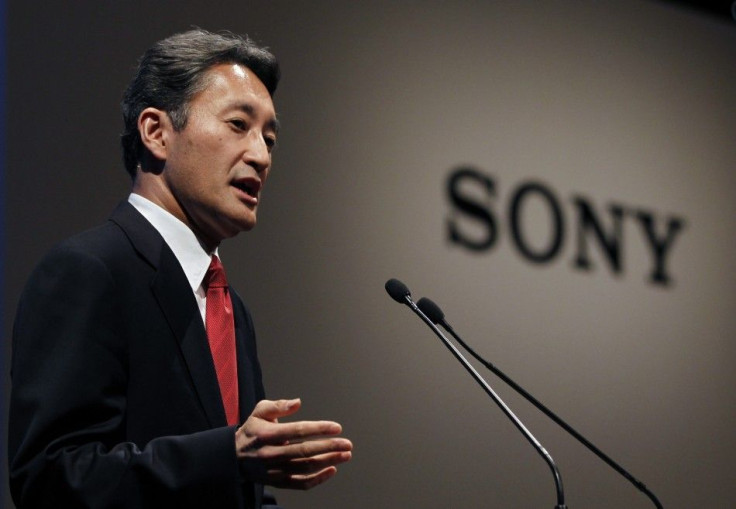Sony Reports $312 Million First-Quarter Loss Following April's Promised Revival: Can 'One Sony' Still Save The Struggling Tech Giant?

Even after making dire predictions for the company's future in April, Sony outdid itself with its first-quarter performance this week. The company reported a net loss of $314 million - -a 77 percent drop in profit for the company from last year. These numbers were far worse than earlier projections, according to Thomson Reuters, which reported a forecasted 35 percent decline in profit.
News of the loss came despite posting 1.4 percent increase in revenue, the Wall Street Journal reports.
In posting the loss, Sony cited factors such as a stronger-than-expected yen, decreased sales from its home entertainment and music division, and the high costs of the company's dramatic restructuring that coincided with Kazuo Hirai's appointment as CEO.
Particularly hard-hit for Sony was the games division, which posted a $45 million dollar operating loss for the quarter, MCV reports. While diminishing sales were "partially offset" by the Playstation Vita's sales, lagging figures for both the Playstation 3 (PS3) and Playstation Portable (PSP) added up to a 14.5 percent decrease over the same quarter last year to $1.49 billion.
Combined hardware sales for the PS3 and Playstation 2 (PS2) were 2.8 million for the quarter, a drop from the 3.2 million sold during the same period the year before. Software sales, meanwhile, dropped over 7 million from the figure posted in the first-quarter of 2011 20.1 million this year.
Portable sales dropped less dramatically over the same time (1.8 million to 1.4 million), but the impact may be more dramatic than the company's home console woes considering how recent the launch of its latest handheld console was. The Vita was well received when it first arrived late last year-the videogame site Kotaku called it "the most powerful and physically capable gaming handheld ever made"-but its high price tag and disappointment line-up of titles failed to give the new hardware any competitive edge over the Nintendo 3DS. By early April when Kazuo Hirai was set to unveil his bold new vision for "One Sony," Nintendo had 65 percent of the handheld market in Japan-a complete reversal from the year before.
As a result of the losses, Sony has been forced to lower its outlook for the coming year, cutting its forecasts for the coming fiscal year from 30 billion yen to 20 billion. "Primarily due to the lowering of the annual unit sales forecast for portable hardware, sales are expected to be significantly lower than the May forecast," the company said in a statement following the report.
"Due to the decrease in sales and the impact of unfavourable exchange rates, operating income is expected to be significantly below the May forecast. Sales are expected to be essentially flat and operating income is expected to decrease significantly year-on-year."
Since taking control of the company, Hirai told investors and the public that he planned to revive Sony with a renewed focus on what he identified as Sony's three "core" product lines: digital imaging and cameras, gaming, and mobile devices. But the prospect for dramatic improvement in these areas is unclear. The company seemed to admit its own mistakes with the Playstation Vita's botched launch when it began offering limited price-drops and later promised in an interview with MCV that the truly "killer games are still to come."
Even the anticipation for an upcoming "super-slim" Playstation 3 model smacks of desperation on the company's part to emulate Microsoft's success in rebranding its Xbox 360 console as a cheaper and more adaptable home entertainment device. As a Goldman Sachs analysts told Reuters before Sony posted its losses: "Sales volume in the smartphone and game business seems to be making little progress toward guidance targets."
But the largest problem for all three of the company's core areas may be out of the company's control entirely. As Yuuki Sakurai, CEO of Fukoku Capital Management, told Reuters: "I don't think we have to worry too much about the U.S. dollar, but the real worry is the euro zone. We'll have to fasten our seatbelts and get ready for the turbulence."
In other words: Europe's current financial woes have crippled global demand for consumer electronics at the same time Sony is attempting to revitalize these key areas of its business, and as a stronger yen is simultaneously cutting into an overseas profits the company does manage to make.
Hirai, Sakurai concluded, "is in a tough position, I don't envy him."
© Copyright IBTimes 2025. All rights reserved.






















